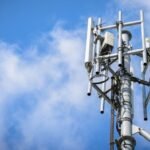
In the tug of war between the Federal Aviation Administration and airlines and the FCC, Verizon, and AT&T over their planned mid-band 5G services, mobile operators rejected the Federal Aviation Administration’s (FAA) request for a two-week postponement. Earlier this year, the FCC sold the rights to use the so-called “C-band” frequency to two operators for nearly $70 billion in an auction.
Verizon and AT&T are eager to introduce this technology, so that in addition to using high-band millimeter wave technology to provide ultra-fast 5G connections in specific areas, and providing much slower 5G through low-band frequencies, the new spectrum will be more extensive. Regions provide moderate signal coverage and performance levels, especially since T-Mobile currently uses a mid-band spectrum that is not in the C-band. The requirements for the use of this technology are even more urgent. On Friday, US Secretary of Transportation Pete Buttigieg and FAA Administrator Steve Dickson wrote to AT&T CEO John Stankey and Verizon CEO Hans Vestberg Friday, asking them to postpone their plans to start commercial deployment on January 5. Air travel regulators said they will use this time to determine priority airports, notify flights, and arrange alternative compliance methods. Bloomberg and Reuters reported that in the two CEOs’ letters today, the two companies believed that the previous 30-day delay and requests to reduce the power of their signals had little effect.
They will start using the C-band spectrum to expand their 5G services on schedule, but promised to avoid deployment around certain airports within 6 months, and use France as an example to explain their position. And stated that this promise relies on “the FAA and the aviation industry promise to do the same thing without escalating their dissatisfaction elsewhere, even though their dissatisfaction is unfounded.” In the letter, they stated: “Now, on the night of New Year’s Eve, just five days before the deployment of the C-band spectrum, we have received your letter asking us to take more voluntary measures-harming hundreds of us. The benefit of thousands of consumers, businesses, and government customers-assisting the aviation industry and the FAA again after failing to solve the problem during that costly 30-day delay period, we have never considered this to be a good start. At its core, your proposed framework requires us to agree to hand over to the FAA oversight of our company’s multi-billion dollar investments in 50 unnamed metropolitan areas that represent most of the U.S. population.
The timing is uncertain. Months or years. To make matters worse, the proposal only targets two companies, without considering the terms of the auction and granting licenses, and is an exception to all other companies and industries within the FCC’s jurisdiction.” In the spirit of cooperation and goodwill, we will again voluntarily change our use of the C-band spectrum during the same six-month period (unless we and the FAA determine that these voluntary restrictions should be relaxed sooner). Specifically, In 6 months, until July 5, 2022, we will adopt the same C-band radio exclusion zone that has been used in France, and make some adjustments to reflect the small differences in the technology deployed in the C-band between the two countries.
This method is one of the most conservative methods in the world — will include a wide restricted area around the runway of certain airports. The effect is to further lower C on the runway or in the last mile of the final approach and the first mile after takeoff The signal level of the band is at least 10 times.” Federal Communications Commission (FCC) Commissioner Mike O’Reilly said on Twitter in this letter: “We can have safe wireless and safe flight. Reasonable people should accept that the US wireless industry is not comparable. France has the reality that there are more C-band restrictions. “According to the Federal Aviation Administration, it is controversial that the guided landing system of the aircraft” may be restricted because of concerns that 5G signals may interfere with the accuracy of the aircraft’s radio altimeter. There are no other mitigation measures.
” However, C-band 5G and these radio altimeters do not actually work in the same band, but the two bands are close enough, so the FAA has this concern. Reuters pointed out that Airlines for America, a trade group representing companies such as American Airlines, JetBlue Airways, Delta Air Lines, FedEx, and UPS, threatened that if the FCC does not take action on the promotion of 5G, they will go on Monday. The court resolved this issue. So far, the FAA’s response to this letter is: “We are reviewing the latest letter from wireless companies on how to mitigate 5G C-band transmission interference. American aviation safety standards will guide our next steps.”
Research Snipers is currently covering all technology news including Google, Apple, Android, Xiaomi, Huawei, Samsung News, and More. Research Snipers has decade of experience in breaking technology news, covering latest trends in tech news, and recent developments.